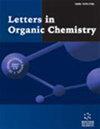褐腐真菌产生的火球状爆炸性过氧化物
IF 1
4区 化学
Q4 CHEMISTRY, ORGANIC
引用次数: 0
摘要
:火球是一种不寻常的罕见现象,通常与雷暴有关,但有时也会在地震、火山爆发或天气晴朗时被观测到。人们对火球的起源、特征以及与环境的相互作用仍有疑问。在这项研究中,一个新的模型解释了在晴朗天气中杨树棉花和褐腐真菌产生的过氧化物形成的火球。光辐射是通过杨木纤维内部木质素中的 1,2- 二氧杂环丁烷苯基香豆素或 1,2- 二氧杂环丁烷单木质素的热分解产生的。据计算,每克火球在爆炸衰变过程中释放的能量约为 3 千焦。这一数值与爆炸性火球衰变的估计值处于同一数量级。本文章由计算机程序翻译,如有差异,请以英文原文为准。
Fireballs-Like Explosive Peroxides Produced by the Brown-rot Fungus
: Fireballs are unusual and rare phenomena usually associated with thunderstorms, although sometimes they have been observed during earthquakes, volcano eruptions or in fair weather. There are still questions about their origination, features and interaction with the environment. In this work, a new model is shown to explain the formation of fireballs in fair weather from poplar cotton and peroxides produced by brown-rot fungi. Light emission is produced via thermal decomposition of 1,2- dioxetane phenylcoumarane or 1,2-dioxetane monolignol, from lignin inside the poplar fibers. The energy released during the explosive decaying of fireballs was calculated as being about 3 kilojoules for each gram. This value is the same order of magnitude as the estimated for the explosive fireballs decaying.
求助全文
通过发布文献求助,成功后即可免费获取论文全文。
去求助
来源期刊

Letters in Organic Chemistry
化学-有机化学
CiteScore
1.30
自引率
12.50%
发文量
135
审稿时长
7 months
期刊介绍:
Aims & Scope
Letters in Organic Chemistry publishes original letters (short articles), research articles, mini-reviews and thematic issues based on mini-reviews and short articles, in all areas of organic chemistry including synthesis, bioorganic, medicinal, natural products, organometallic, supramolecular, molecular recognition and physical organic chemistry. The emphasis is to publish quality papers rapidly by taking full advantage of latest technology for both submission and review of the manuscripts.
The journal is an essential reading for all organic chemists belonging to both academia and industry.
 求助内容:
求助内容: 应助结果提醒方式:
应助结果提醒方式:


